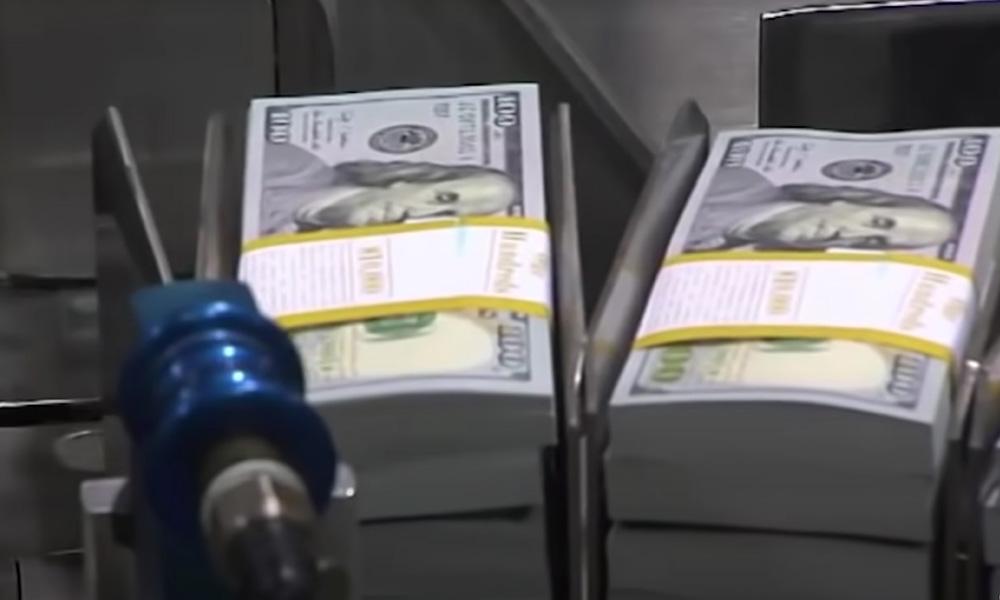The US government shutdown continues and the appropriations bill has flaws, but there are signs of progress in bipartisan negotiations.
2025-11-04 10:53:01
Senate Majority Leader John Thune has pointed out a major flaw in the bill: even if it passes the Senate in the coming days, it does not guarantee that the government will have enough time to operate.
"The funding deadline must be adjusted," Thun said on Monday (November 3).

Short-term funding bill in trouble
If the Senate had passed the short-term government funding bill submitted by the House of Representatives at or before the government shutdown, the funding deadline could have been extended to November 21, giving the Congressional Appropriations Committee nearly two months to complete negotiations on the full-year funding bill.
Now, on November 3, the short-term funding bill, which originally provided a seven-week grace period for fundraisers, has been shortened to two and a half weeks.
Thune stated that the November 21 funding deadline set in the House bill would not give lawmakers enough time to complete the year's appropriations before facing another government shutdown. Therefore, the Senate's new strategy regarding government funding would involve some adjustment to the deadline.
"That date has expired, so the question now is what the next date will be," Thun told reporters on Monday.
Thune said he was open to proposals to set new deadlines, including extending the short-term funding bill to early 2026 to keep the government running.
If such a Republican-backed bill gains the Democratic support needed to advance, the Senate has several ways to change the date. Thune left open a range of possibilities: the Senate could pass a House bill and then amend it, or it could embark on drafting a completely new bill.
In either scenario, if the Senate ultimately passes an appropriations bill that includes a new deadline, the House will have to reconvene for a vote. Senate bills cannot be sent directly to President Trump's desk. This means that if the Senate ultimately takes action, House Speaker Mike Johnson may have to recall House members to Washington for the first time in weeks.
Thun expressed optimism that the government shutdown would end this week.
U.S. Senate Majority Leader John Thune said he was "optimistic" that an agreement could be reached this week to end the government shutdown, thanks to progress in grassroots negotiations between the two parties.
Thune told reporters that the goal is to get the revised temporary spending bill to a vote in the House of Representatives before the end of the week in order to restart government operations.
"Obviously, there were a lot of discussions over the weekend, and hopefully that will lead to the desired results," Thun said.
The Senate is expected to extend the November 21 deadline of the temporary funding bill passed by the House of Representatives by at least several weeks. Thune previously told POLITICO that the deadline should be extended to at least January, but has not yet explicitly supported a specific timeline. Republican leaders are discussing setting a new deadline between late January and March.
He said, "It would be better to allow for a longer buffer period."
Thune stated, "Based on my intuitive judgment of how these kinds of events work, I think we're close to finding a way out. But I must reiterate that this government shutdown is unlike any other in terms of how Democrats have responded."
Thune hinted that little has changed regarding what Republicans are willing to offer Democrats in exchange for the remaining votes they need to reopen the government. The conditions offered by Republicans remain procedural, not healthcare, as demanded by Democrats, so it's unclear whether these conditions will be sufficient to secure the necessary votes to move forward.
Bipartisan negotiations show signs of progress, but disagreements remain on procedural medical care.
Groups of senators from both parties have been discussing how to package a short-term funding bill that would restart government operations, advance the consideration of a year-long funding bill, and give Democrats the right to vote on the expiring Affordable Care Act subsidies.
Senators involved in the negotiations believe that progress is being made. While Senator Thune expressed optimism that a way to avoid a government shutdown would be found soon , he admitted that he was not yet entirely certain .
Republicans hope that more Democrats will pledge to end the government shutdown after Tuesday's non-election year elections, which include races for governors in New Jersey and Virginia.
Democrats say their decisions are not influenced by elections, but by the real hardship they are causing to the American people—including the anticipated delays in the distribution of federal food aid this month.
Senator Dick Durbin (Democrat, Illinois) told reporters on Monday that he had noticed a growing consensus among his colleagues to develop an exit strategy, but admitted that a concrete plan was still uncertain. Democrats insist on restarting negotiations on healthcare and have made it clear that they will reject any proposal for a simple vote if a bipartisan agreement cannot be reached.
- Risk Warning and Disclaimer
- The market involves risk, and trading may not be suitable for all investors. This article is for reference only and does not constitute personal investment advice, nor does it take into account certain users’ specific investment objectives, financial situation, or other needs. Any investment decisions made based on this information are at your own risk.





















